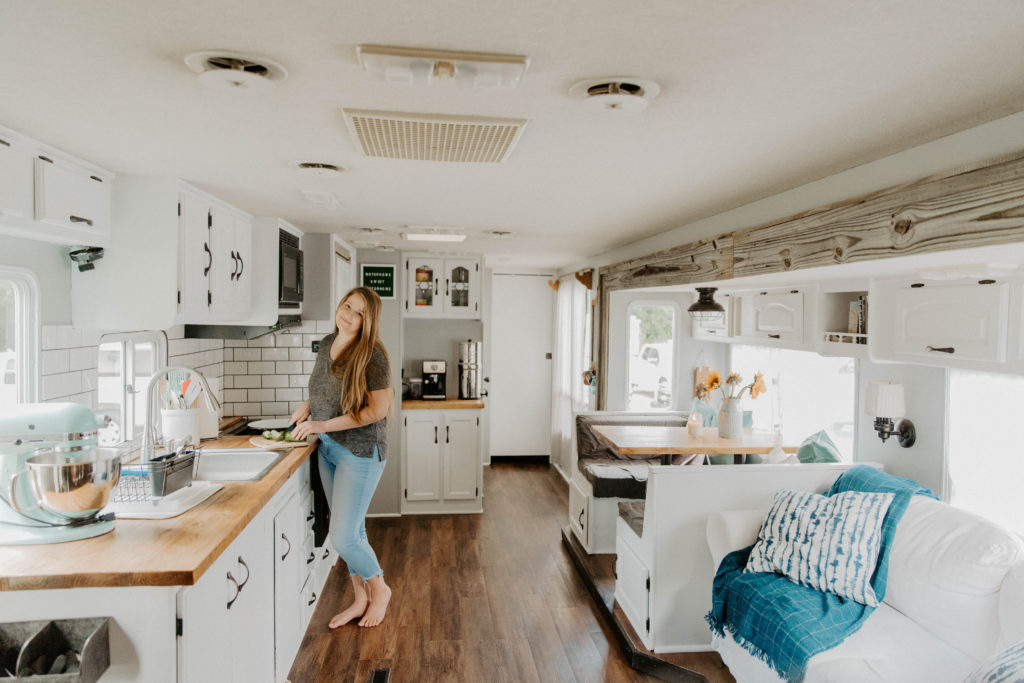
We’ve been living in our renovated RV for over 3 years now, and we’ve definitely learned a thing or two about RV life. While there are so many pros to living this lifestyle, like more freedom and flexibility, there are definitely cons as well. Now don’t get me wrong, the pros far outweigh the cons, but here are 5 things I wish I’d known before living in an RV!
RV Parks and Loans can cost as much as a house.
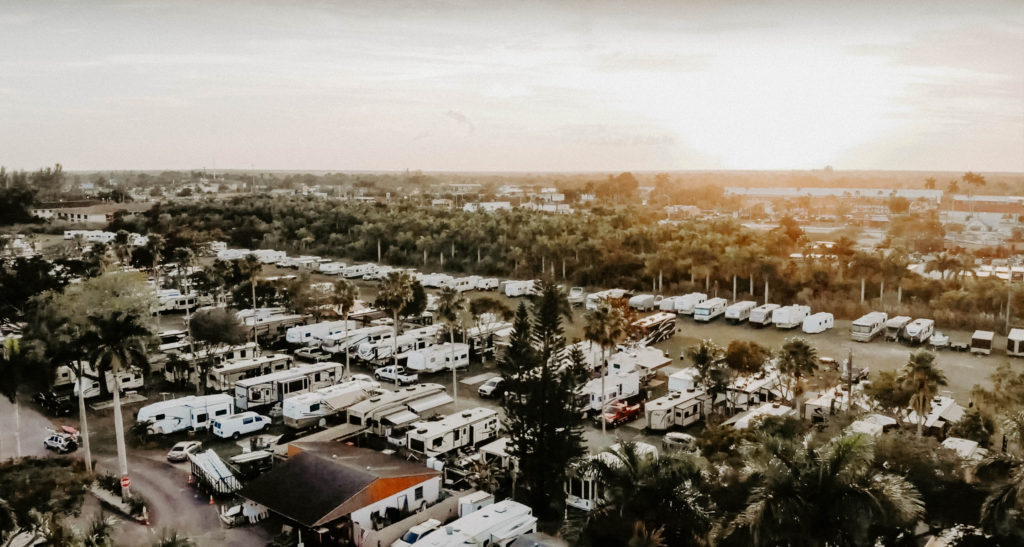
The first thing that I wish I’d known before living in an RV is that most RV Parks cost the same, if not more per month than rent. I’ve talked to tons of different full time RV-ers about this, and the reality is that it’s different for everyone.
People that live in places like California where rent is really expensive, and the cost of living is high, actually end up spending less to live in an RV.
And for us, it works out because when my hubby is on a film job, the producers will actually pay for our RV site! And that’s because they would usually have to put us in a hotel.
But that’s definitely not the case for everyone, and many have found that living in an RV and traveling can cost the same, if not more than living in a house.
Another thing to consider is whether or not you’ll have to take out a loan to pay for your RV. We were able to pay for our motorhome in cash, and we would definitely suggest doing that if you can. The combination of paying off a loan and RV park fees would be very comparable to rent in most cases.
Those are just some things to consider. Don’t make the mistake, like we did, of thinking that RV life is automatically going to be cheaper than renting.
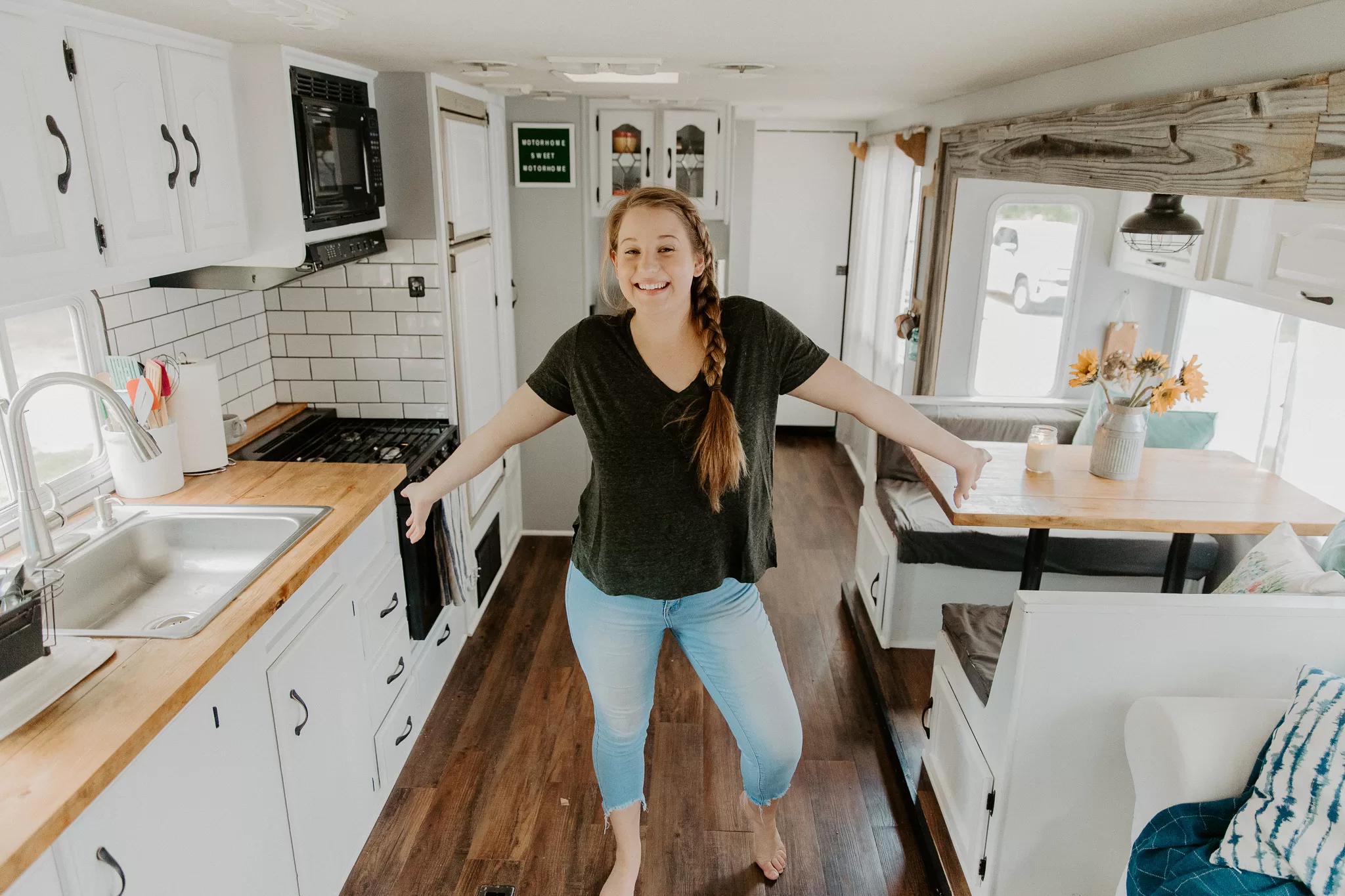
Check out our Must Have RV Essentials!
After living in an RV full time for 3 years, we’ve learned a thing or two about what you need and what you don’t. We’ve compiled a list of Must Haves for RV life, RV Organization Essentials, and more!
RV’s get really bad gas mileage.
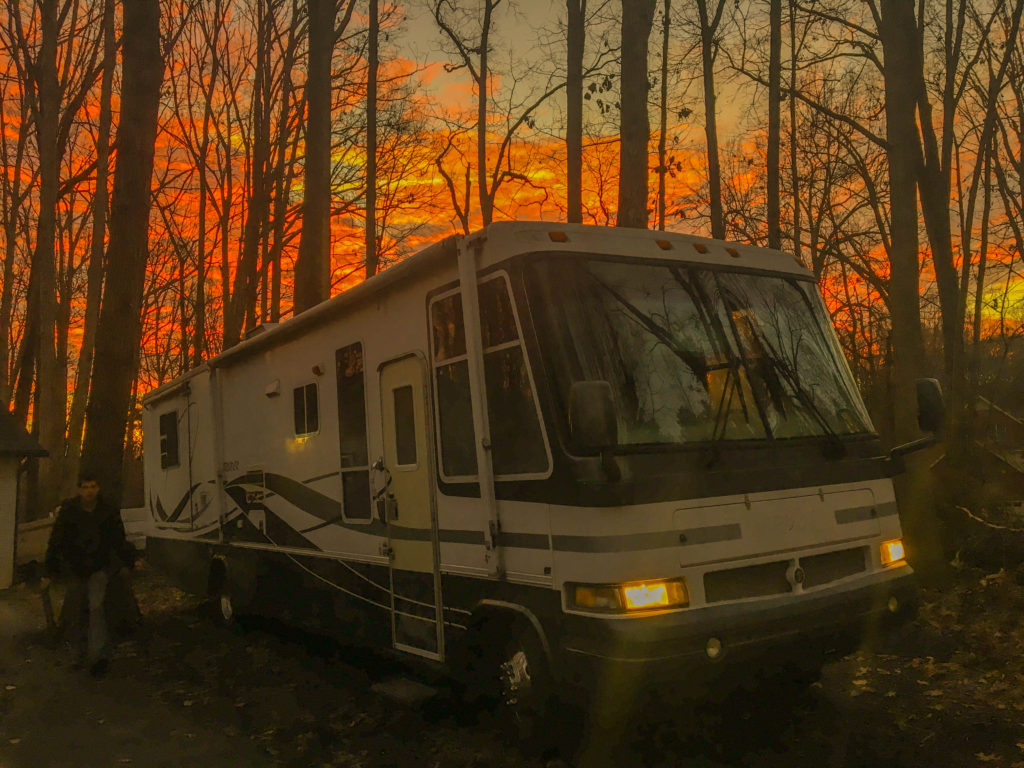
When we first got the RV, I knew that motorhomes didn’t get great gas mileage, but I had no idea just how bad it would be. It makes sense when you think about it, our rig weighs thousands of pounds and is towing our car also. But I don’t think I realized just how expensive it would be until we went on our first trip.
Class A Motorhomes (which is what we have) only get 6-8 miles to the gallon. Which means it would cost more to take it with us on long trips than it would to stay in nice hotels.
I had this idea in my head that we’d be able to take cross country trips at the drop of a hat because of our home on wheels. Nope! It would literally cost us thousands of dollars just to drive there and back with the RV.
I’ve also talked to several other RV-ers about this, who own everything from fifth wheels to motorhomes to campers, and they all said something similar. It’s just plain expensive to drive big rigs around the country. Some rigs get a little bit better gas mileage, but make sure to do your research before you purchase!
Here’s how we make it work: We usually don’t just take our RV anywhere we want, and only drive it long distances when we get a job that will pay for the gas.
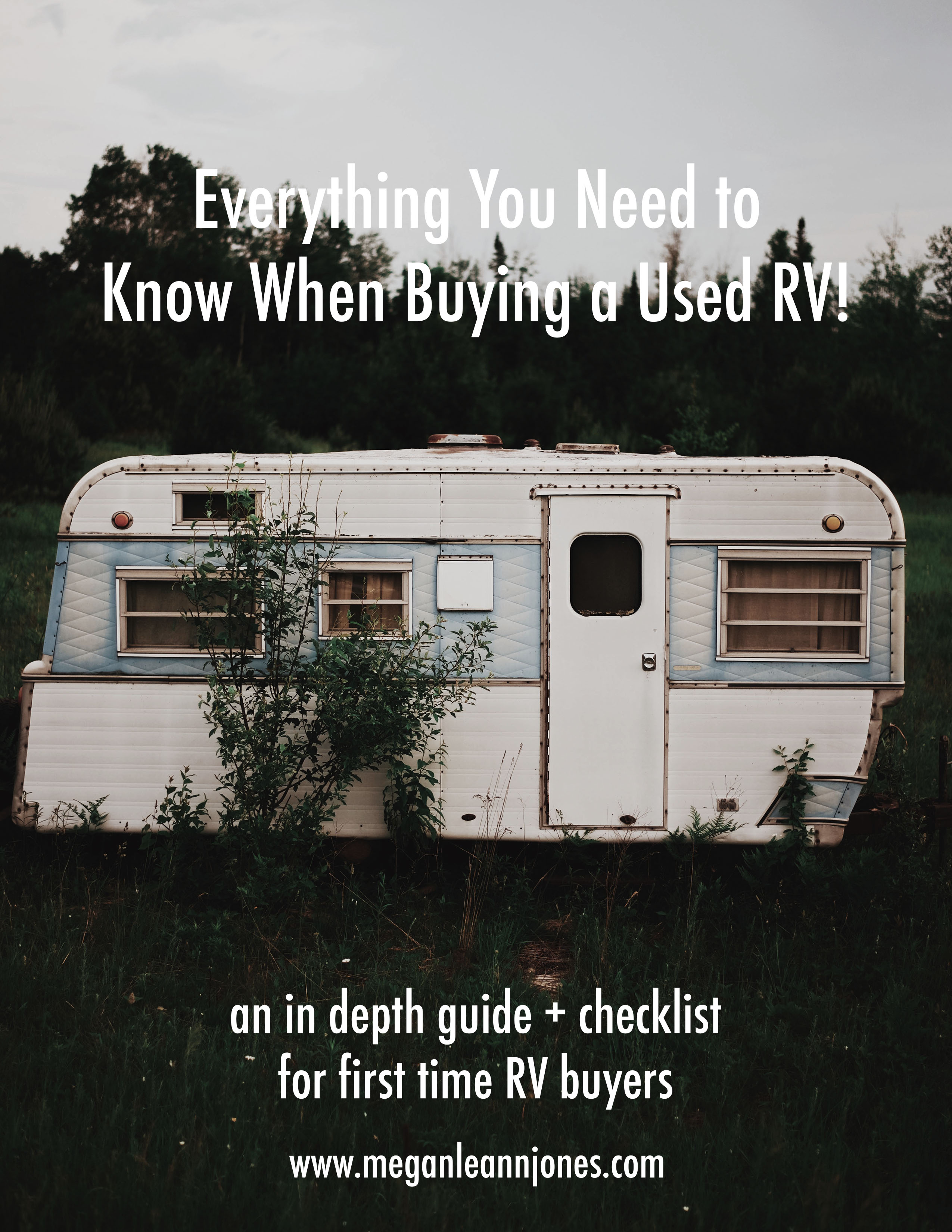
Things are constantly breaking and needing to be repaired.
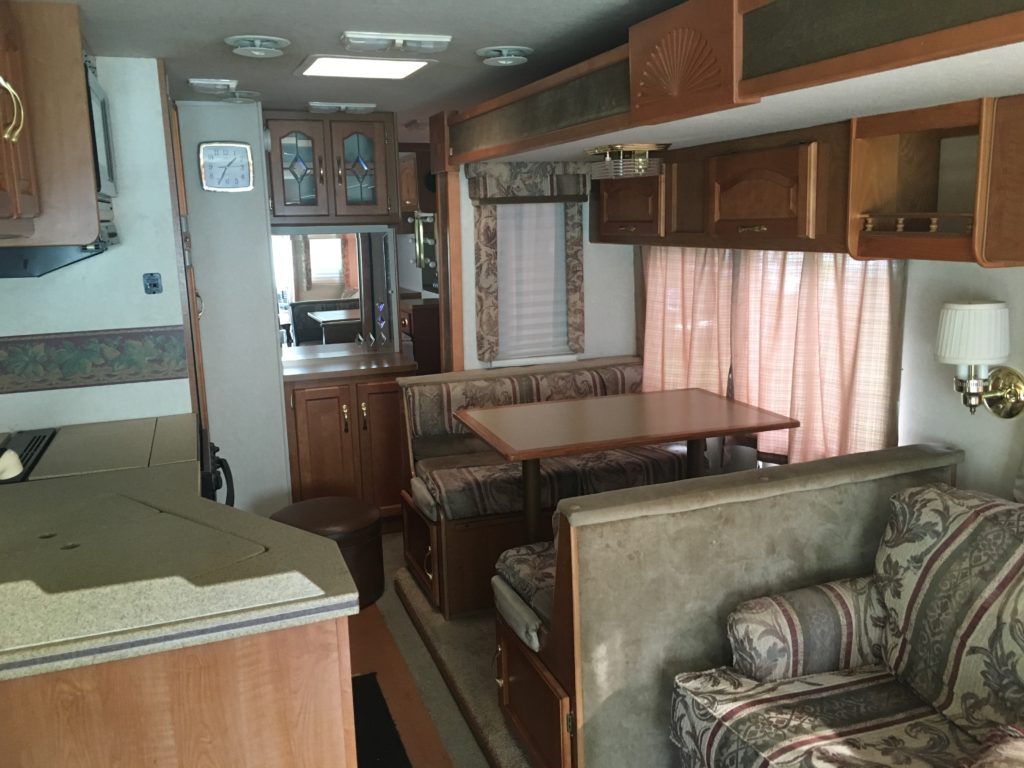
When we went to look at our RV, everything seemed to be working just fine, we did a super thorough inspection before we bought it. But over time, stuff just breaks. What we’ve realized is that RV’s are not designed to be lived in full time, and so nothing seals very well. Things leak and need fixing pretty much constantly.
For example, our generator hadn’t been working properly since we bought the RV, and we only recently got it fixed.
Also, it’s a lot harder to take the RV into the shop because it’s our home! So we either have to stay in a hotel or with family while it’s being fixed.
Thankfully, my hubby is really good with fixing things, so he can fix a lot of the smaller stuff. But we had to take it into a shop to fix the generator. It was several days, and several hundred dollars to get it repaired!
And that’s just one example. Our leveling jacks are also broken, our hot water heater is finicky, our slide doesn’t come in all the way most of the time, and the list goes on. I have several friends who have had even more major problems like black water tanks breaking, serious water damage, engine failure, and expensive things like that. Just something to be aware of!
We have to grocery shop more often.
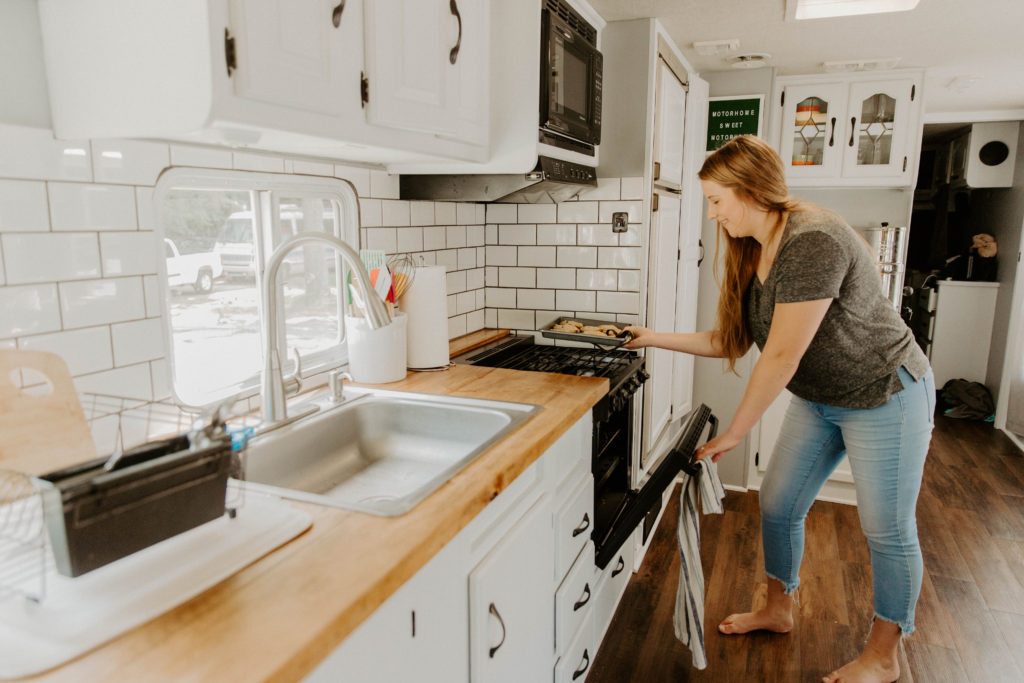
Living full time in an RV means that we have to grocery shop more often, and be more intentional with the food we buy because our fridge is tiny. And our fridge is actually bigger than a lot of RV fridges.
I suppose this could also be viewed as a pro because having a smaller fridge keeps us from buying extra stuff us only buy the things that we absolutely need for our meals. There’s just no room for extra stuff! So it actually saves us money and helps us to eat healthier.
The only thing is if you have more than 2 people living in your RV, then things might get more complicated. You might have to grocery shop several times a week!
We have a few full time RV friends that have a full size fridge, and I am SO jealous of that. It really makes a difference. I’m planning to write a blog post more in the future about how we grocery shop and make the most of our small fridge and freezer, let me know in the comments if that’s something you all would be interested in seeing!

Check out our Must Have RV Essentials!
After living in an RV full time for 3 years, we’ve learned a thing or two about what you need and what you don’t. We’ve compiled a list of Must Haves for RV life, RV Organization Essentials, and more!
The less stuff you start off with the better off you’ll be.
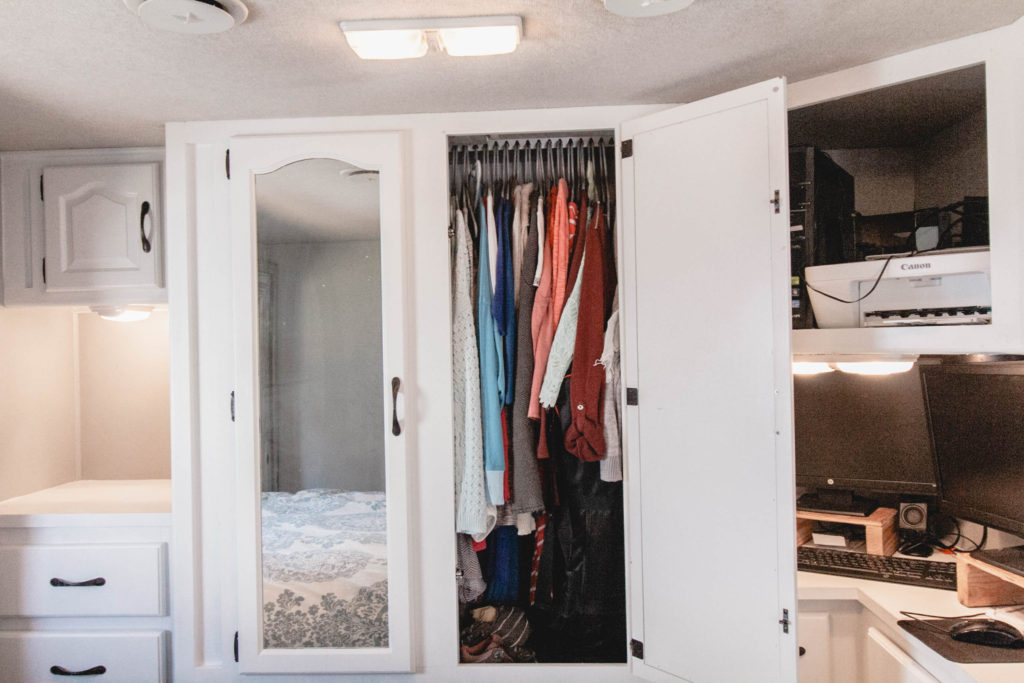
I think this is true for anyone, even if you live in a house, but especially if you’re wanting to live in an RV. We didn’t have a whole lot of stuff when we bought the RV, but we still had too much!
We’ve had to get rid of things and downsize even more since living in the RV just to stay organized. We’ve gotten to the point where we literally only have the things that we absolutely need to live and it’s actually really refreshing! In our 2 years of RV living, we’ve constantly re-organized our stuff and assessed just how much we need, what we haven’t used in the last 6 months, etc.
I’m planning to write a future blog post going more into the essentials that we can’t live without, and the things that we thought we needed that we really didn’t. If that’s something you’d like to see, let me know in the comments!
And those are my top 5 things I wish I’d known before living in an RV! We truly love RV life and wouldn’t trade it for the world, but there are definitely some cons to this lifestyle. I hope this post was helpful for you as you start your RV-ing journey!
Megan
Related RV Blog Posts:
How We Renovated Our RV Kitchen on a Budget
Pin this post to save for later:
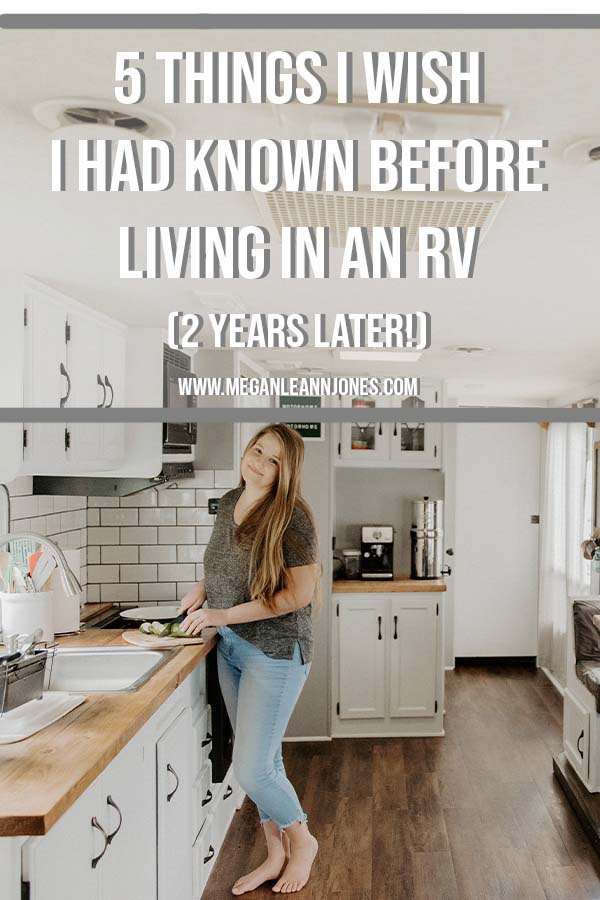
124